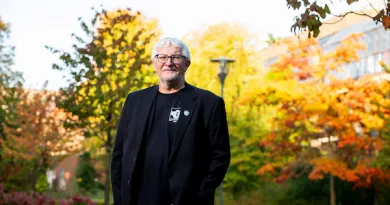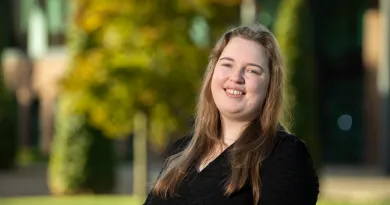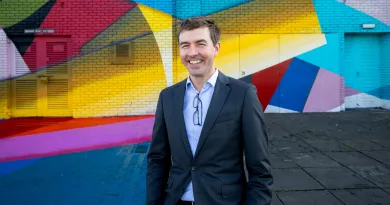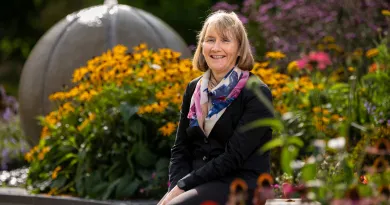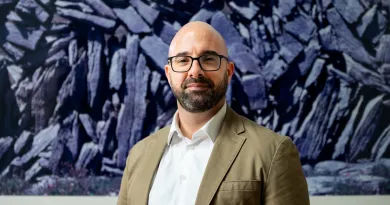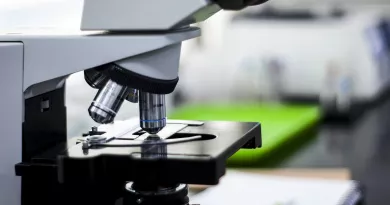Doireann O’Kiely is an Associate Professor in Applied Mathematics at University of Limerick.
Her research focus is on building mathematical descriptions of physical systems, to help understand how they behave, to make predictions, and so that we can utilise them better. Some examples of this highly collaborative research include modelling batteries to help improve their design, modelling chemical spills so they can be cleaned up quickly and safely, and modelling wrinkles in different materials to control their appearance and disappearance in applications like optics, microfluidics and solar power.
Doireann completed her undergraduate degree in theoretical physics in UCD and undertook an MSc in Mathematical Modelling & Scientific Computing in Oxford,. She remained in Oxford for her PhD in Mathematics and a postdoc before returning in Ireland to take up a position in MACSI [Mathematics Applications Consortium for Science and Industry] and the Department of Mathematics and Statistics in UL in 2020.
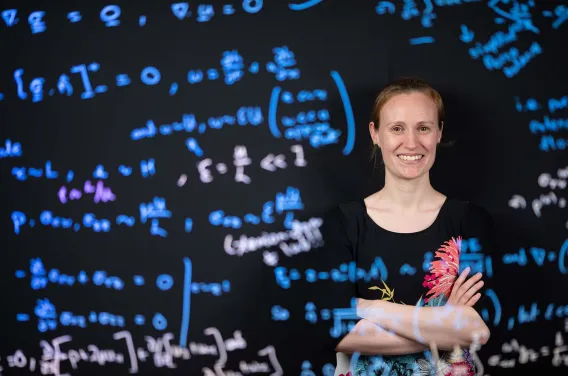
You can ask a question and if someone knows the answer, that’s great. But when no one does, and you have to go and figure it out yourself, that’s research.
That’s the job.
For Doireann O'Kiely, maths is the key to overcoming real-world problems in a sustainable way and says each small step in understanding leads to new developments with farther-reaching consequences.
I think it can be hard to understand why maths matters, because we have this association of it with the textbook. But for me, when I go out in my everyday life and I see things that confuse me, math is the tool to figure those things out.
From the ordinary to the game-changing maths helps to build a Smarter Society
There are lots of societal problems where we need to improve our understanding. In some situations, you can do experiments with the system and in some you can't. And in those situations, a mathematical description lets you do abstract experiments in a way that won't harm anyone but still gives you valuable insight.
Those puzzles to be solved range from the very ordinary right up to game-changing technological innovations.
Mathematics is the answer to why your hair looks different when it's wet or dry. Why your dress wrinkles sometimes when you sit down, and why you have to make smartphone screens in a completely different way to how we've always made windows.
But these things feed into bigger, more important questions because the wrinkles in the dress are wrinkles in tech applications. And you can, for example, use wrinkles to improve how much solar energy a solar device takes in.
If you can understand how one happens, you can understand the other.
It’s this understanding that leads to the development of innovations for a smarter society.
Maths appears in all facets of life
Our research can have positive impacts in many areas. For example, when we study manufacturing problems, we figure out how to reduce waste, which can mean reducing energy use or reducing material use.
If you want to study chemical spills, then you're thinking about really dangerous, toxic materials and you're often thinking about them inside of the ground. You can't physically look at the real thing, but you can ‘look’ there when you're using equations. We use maths to understand how far it goes, how fast, and what we can do to neutralise it.
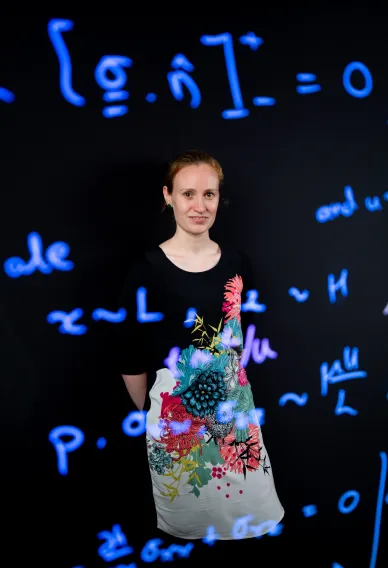
A curious mind is a prerequisite for the magic to happen
I'm a really curious person. I wonder all the time why things are the way they are or behave a certain way. And research gives you an opportunity to pursue those things and keep pursuing them until you figure them out.
Often there are two stages. One is figuring out why something is the way it is; you can use maths to figure out why a certain input gives a certain output. And then it's about, ‘well, what happens if I change something?’
Each variation on the experiment is one more of the countless small steps towards the greater good.
If you have a big hard question, the answer doesn't magically appear.
You really think of it as a huge puzzle with lots of small steps. At each step you figure something out, you understand a little bit more, you're a little bit more capable, and now you're able to figure out more steps. At the end of each day, even if you haven't solved your grand challenge, you go home having made a step in the right direction.
Greater than the sum of its parts
Cooperation and collaboration are key to success, something Doireann finds in plentiful supply at University of Limerick, both between departments and with external partners.
For me, the best applied maths is very interdisciplinary. Your questions often come from other disciplines. Your answers normally feed into other disciplines. What you're looking at is not just ‘what equation can I solve’, but ‘what equation should I solve to help this person’? ‘What equation should I solve to figure out this problem?’ And ‘what equation does that person's experiment tell me I should be thinking about?’
Previously, we brought in five companies, and they all presented problems that were important to them. We put mathematical descriptions on them to come up with solutions. And that was something that really mattered to me, because it meant that we were doing maths that had a real impact on people.
Some of the companies were from the medical sector, some were trying to recycle materials. The goal was to help them do better in order to improve people's lives. That's a really special thing because the maths is very powerful, but it means more when you see what it's actually being applied to.
Real world focus and desire to do more
I was really attracted to University of Limerick's focus on the real world, on industry, on society, on people. The people working in mathematics and statistics here are people who are focused on using their skills for good and for improving people's lives. And that's an environment that I'm really excited to be part of because it's motivating, but it's also inspiring to see what other people do with maths. For example, using data around cancer patients to try and improve outcomes.
That helps motivate me to use my maths for good as well.
That’s not to say there isn’t more work to be done. Those leading the way in Applied Maths at UL have ambitions for greater real-world impact and increased collaboration.
One thing I'd really like is for people to see University of Limerick as a place that they can bring their problems.
We want people to bring their authentic problems and we will put a mathematical description on it, figure out an answer, and then give back a real-world solution. They're often really surprised by how far we can get using maths.
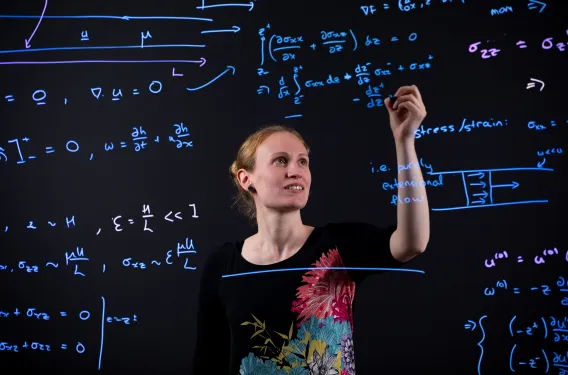
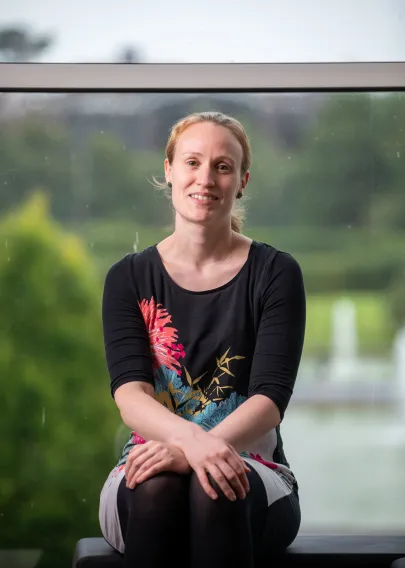
‘...why, but why, but why!’
For Doireann and her colleagues, that endless search for greater understanding and knowledge is as natural as breathing.
I think every child is a scientist. Every child goes through a phase where they ask lots of questions, where they keep asking ‘why, but why, but why’?
And that's exactly what being a scientist is. And if you're a researcher, that means you get to keep doing that as an adult.
Here’s to always asking ‘why’!
Curious about Doireann O'Kiely research
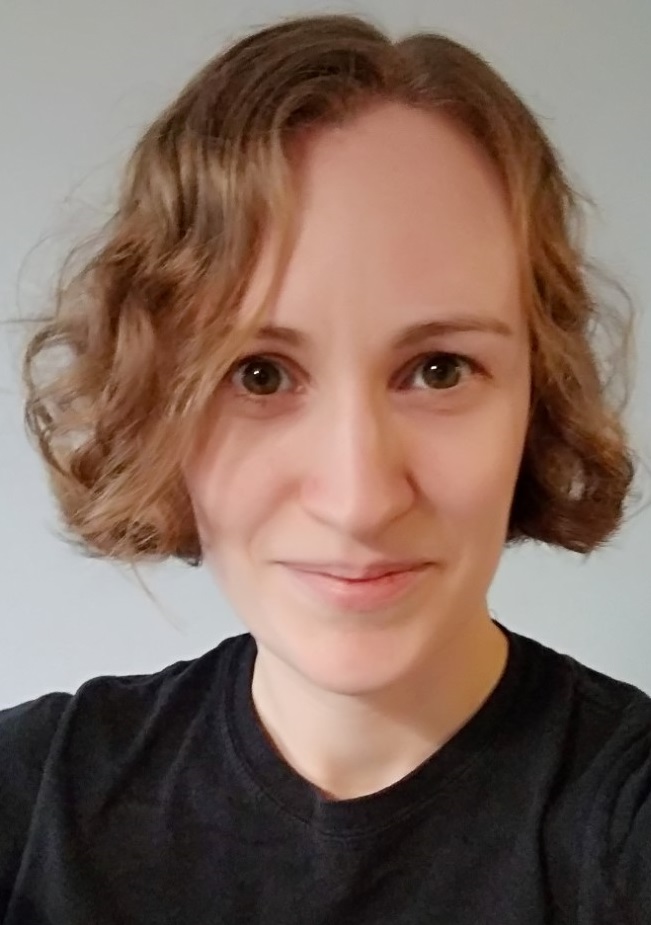
Read about the other researchers helping to change our society
Stay Curious for UL Research
